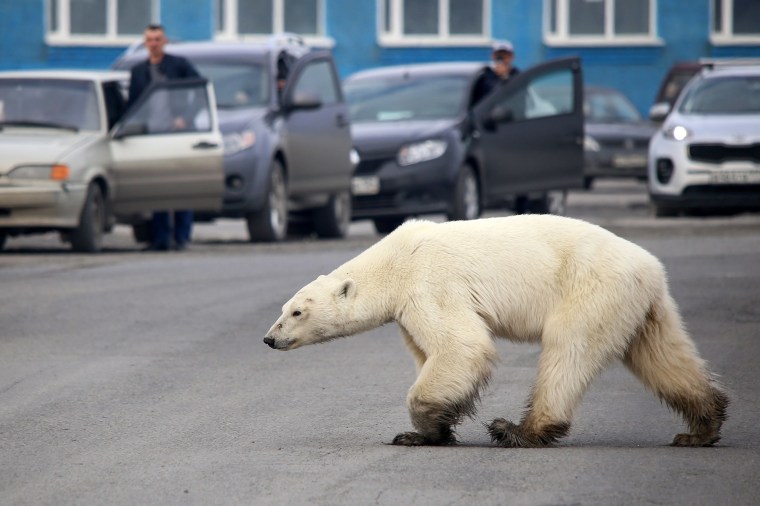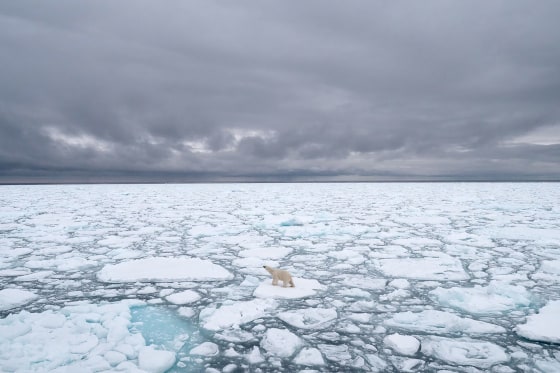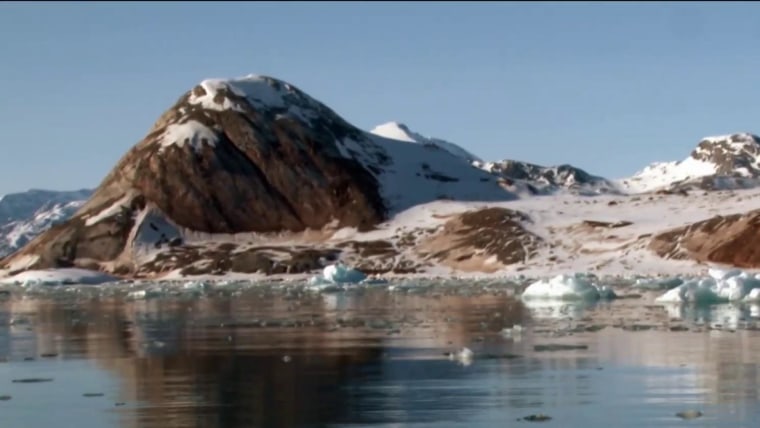Polar bears have long been the poster child of the consequences of climate change. A new study now suggests the Arctic species is at risk of being starved into extinction by the end of the century.
As sea ice continues to vanish due to warming temperatures, polar bears are increasingly struggling to find the food they need to survive, says the University of Toronto-led study published in the scientific journal Nature Climate Change on Monday.
There are an estimated 22,000 to 31,000 polar bears in the wild, according to the World Wildlife Fund, although precise numbers are hard to determine due to their remote habitat. The species is listed as vulnerable.
Polar bears rely on sea ice for hunting seals, their primary food source, according to the new study. But the spread of ice has been on the decline as climate change accelerates the rise in temperatures at the poles, keeping them on land where it's harder to catch seals.
While the bears can fast for months, their survival depends on how much energy they've managed to reserve through eating ahead of time, the energy they expend during the fast and how long a fasting period lasts, the study said.
Researchers admit it's unclear exactly how long the bears can endure fasting before it affects their ability to reproduce or individual mortality.
But in at least two regional groups of polar bears, prolonged fasting periods have already shown to negatively affect their body condition, reproduction rates and size of their populations, the study said.

This trend is expected to be seen across groups of polar bears in the Arctic as ice loss continues.
The species ability to adapt is also in doubt. At the end of the last ice age, polar bears failed to move and survive on land, and instead migrated further north. "Foods that meet the energy demands of polar bears are largely unavailable on land," the study said.
The Arctic was set to have warmed twice as much as the global average in 2020 compared with pre-industrial temperatures, according to the World Meteorological Organization.
It's contributed to some of the lowest levels of sea ice ever recorded. In September, following the summer melting season, sea ice declined by more than 50 percent compared to the average from 1979 to 2019, the organization has reported.
This is already having dire consequences. In Siberia, a prolonged heatwave that began in January has sparked wildfires that scorched more than 2.8 million acres in late June.
An analysis led by the U.K.'s Met office that was published last week found that the prolonged heatwave was made 600 times more likely because of human-caused climate change.
Polar bears, along with the rest of the Arctic environment, aren't without hope, however.
"Ultimately, aggressive greenhouse gas emissions mitigation will be required to save polar bears from extinction," the recent study said.


